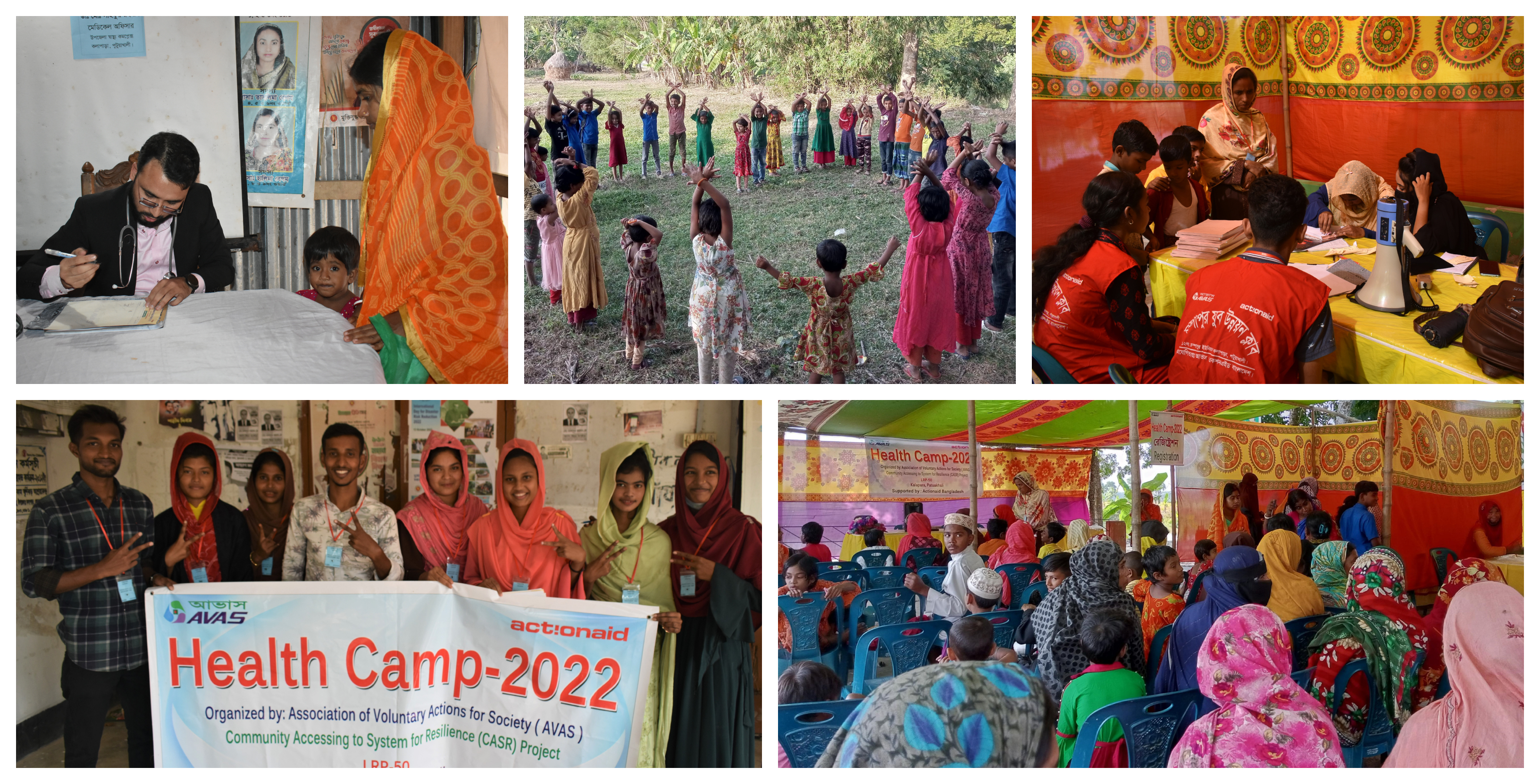

Increased salinity due to climate change is adversely affecting the health of women and children in Kalapara. In this situation, the inadequacy of health care has been identified as the major barrier to ensuring health care in the community of Kalapara. To address this to some extent, ActionAid Bangladesh has organized medical health camps in 3 working unions of LRP 50 in the Patuakhali district. The objective of this health camp was to raise awareness amongst the deprived and underprivileged people living in the coastal areas. The free medical service was provided by the government doctors of Upazila Health Complex and intern doctors from Sher-e-Bangla Medical College. ActionAid provided free medical facilities along with doctor-prescribed guidelines. This health camp was volunteered by the children from the child forum and ActionAid partner staff.
Communication is a big barrier in this area where people of remote places have to cross numerous waterways to reach the Upazila health complex, the first referral health facility at the primary level of the health care delivery system in Bangladesh. Amidst existing structural vulnerabilities, their health condition gets suffered from extreme weather events such as cyclones and slow-onset hazards such as salinity intrusion in soil, groundwater, and surface water.

In these three days daylong health camps, around 320 community people including children, females, males, and old age people received direct health treatment and check-ups of which 90 patients received medicine. These health camps also make sure that people are taking healthcare at the right time and seeing the doctor earlier enough before falling into a critical situation. The doctor of this Health camp mostly diagnoses the patient with skin disease due to using high-salinity water. Additionally, doctors provided awareness on taking good care of women’s health due to the potential maternal health impact by increased exposure to salinity that damage the reproductive. Girls and women experience reproductive health consequences due to using saline water during their menstruation and after the child delivery period. Moreover, increased salinity exposure through drinking, cooking, and bathing has also been reported to have potential links to acute respiratory infections.
Nipa (33) who came to seek help and support from this camp shared, “I came here with my boy and girl. I am so happy about this treatment benefit. My boy has cough for a long and the doctor give him medicine after a thorough checkup. We would have been able to visit the doctor, but medicine costs were huge for my family. I hope my child will feel better.”
A girl Yeanur (16) has been diagnosed with skin diseases shared, “I just noticed my skin get rough but never thought it is not a simple thing. The doctor prescribed me not only medicine but also aware me to stay away from using high saline water. So, I would try to preserve rain source water and use water reducing the salinity to keep away from skin diseases.”